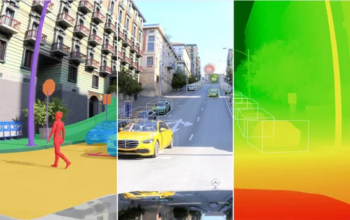Although gasoline-powered vehicles still account for the majority of the auto industry, EV technology has advanced to the point where you could start to consider buying an electric vehicle as your next vehicle. We can help you understand what Electric Vehicles are. And what they can accomplish, and where they’re heading if you’re curious about them but don’t know where to begin.
What, Exactly, Is an Electric Vehicles?
Electric cars (EVs) are popular, with yearly sales growth and a vast selection of models offered by almost all major automakers. Simply put, an electric vehicle (EV) is a car that runs on batteries rather than fossil fuels. An electric vehicle (EV) has a set of batteries that power an electric motor in a similar fashion to how a gasoline-powered vehicle has a fuel tank that supplies fuel to its engine.
There are several distinct types of EVs, including battery electric vehicles (BEVs), which run only on batteries, and a number of hybrids, which run on both gasoline and batteries. Only pure battery-powered electric vehicles provide the ease of charging at home or at a public charging station. Some electric vehicles also employ hydrogen-powered fuel cells.
How Electric Vehicles Vary From Gasoline-Powered Vehicles
EVs and gasoline-powered cars might have a similar exterior appearance, but they differ significantly within. An EV has a set of strong batteries in place of a petrol tank. And EVs feature electric motors that create no emissions in place of a gas-powered engine, which produces a variety of greenhouse gases as a result of combustion.
When your EV isn’t in use, you plug it into a charger, exactly like you do with your phone and other portable gadgets, as opposed to filling it up at the neighborhood gas station.
Compared to gasoline-powered cars, EVs frequently have superior performance, more economy, and even more internal storage. When compared to similar vehicles, they are also more expensive, but costs have decreased over time. Many EV models are eligible for federal tax credits, state credits and rebates, and other programs.
How Electric Vehicles Work
Energy is first stored in batteries in electric cars, which are then used to power an electric motor. The batteries are typically charged by connecting an EV into a charging station. Although other options include wireless charging and solar power in some cases.
An electric car may have a single electric motor. Similar to how a gasoline car has an engine, or it may have a different electric motor for each wheel. While an EV with separate motors can give better handling and even do feats like “tank turning” that gasoline cars are unable to perform, a single motor is often more cheap and inexpensive.
A “tank turn” is a fascinating move where a vehicle revolves in position without going forward or backward, albeit it isn’t always practicable.
An electric vehicle may also utilize its motor as a generator. This is by running it backwards when it needs to slow down. Regenerative braking is a technology that enables electric vehicles. To recharge their own batteries, recover some lost energy, and operate more efficiently.
When slowing down, EVs with all-wheel drive or one motor per wheel can recover even more energy.
Electric vehicles (EVs) sometimes have larger interiors than equivalent gasoline vehicles. Since they don’t need large gasoline engines, gearboxes, and other components. With some EVs offering both a frunk, or front trunk, in the location where a gasoline vehicle’s engine would be, more storage is frequently available as well.
Using battery-powered motors rather than gas engines results in EVs being substantially quieter when they are in use.
How to Charge Electric Vehicles ?
Battery electric vehicles and plug-in hybrids both need to be plugged in to recharge; basic hybrid electric vehicles charge themselves as they travel. Residential charging stations, public charging stations, and commercial charging stations are all options for charging.
You may put a charging station in your own house, as well as at businesses, petrol stations, and apartment complexes.
You can charge An electric car in a similar way to other devices. In place of a gas cap that needs to remove in order to add gasoline, EVs feature an electrical hookup. The batteries of an EV charge when the charging cable from a charging station is plugged into the charging connection on the car.
While lower-power home chargers are using to charge slowly over night, fast charge stations give power more quickly.
The same principles that apply to wireless phone charging apply to other forms of wireless charging. A wireless charging receiver is incorporated into the undercarriage of vehicles that can use this technique. By parking the vehicle over a wireless charging pad we can charge the vehicle.
An EV Is Designed For Whom?
Everyone can drive an Electric Vehicle, and there are models to fit almost every need. You can even get EV trucks, SUVs, and crossovers, ranging from reasonably priced family sedans and hatchbacks on one end of the range to two-door supercars on the other.
While most people should be able to locate an EV that meets their needs, some situations are better for EVs than others. The main restriction is charging, which might be problematic for some people depending on their living situation.
Keeping an EV charged might be difficult if you reside in an apartment or condo complex that does not offer EV charging. The same holds true for houses with simply street parking. Although you might not currently have access to it where you live, certain localities offer EV charging infrastructure.
Range has also been a problem in the past, but if it was ever your major issue, you should look at the current choices. The ranges of long-range electric vehicles are comparable to those of gasoline-powered vehicles, and charging stations are available everywhere.
In the upcoming years, if there aren’t many charging stations where you live and travel, that’s probably going to change.
Reasons for the Auto Industry’s Switch to Electric Vehicles
EVs have been around for more than a century. But for the majority of that period, gasoline cars largely ignored them. Although the automobile industry has long dabbled with the technology. It wasn’t until recently that battery capacity and other significant advancements allowed EVs to compete with gasoline vehicles in terms of performance and range.
Even while EVs currently only make up a small portion of the whole automotive industry. The sector has begun to move away from fossil fuels and toward battery power. There is a regulatory component as well as the industry’s wager that consumer demand would rise as people get more accustomed to and at ease with EVs.
The sale of new gasoline automobiles has already been put on hold in certain jurisdictions, and it’s probable that others will soon do the same. The sale of new gas-powered automobiles might soon come to a stop nationwide thanks to a legislative rule. That’s likely to be years, if not decades, in the future. But the car industry wants to be ready when it comes.
Cost of Electric Vehicles Ownership and Operation
For a variety of reasons, the expenses of owning and operating an EV are often less than those of owning and operating a comparable fuel car. When compared to gasoline cars, electric vehicles are less expensive to charge and to refuel. They also often require less regular maintenance.
Due to a federal EV tax credit that is applicable to the majority of EVs and state incentives that can further lower the price, purchasing an EV may also be more inexpensive than you anticipate.
Where you reside affects a lot of the expenses related to buying and operating an EV. For instance, when you purchase an EV, several states give you credits or don’t charge you sales tax. Other states have more advantageous policies, such as lower fees for tags or licenses. Additionally, most EVs are eligible for a federal tax credit that lowers the cost of purchasing an EV.
Because EVs are so much more efficient, the largest savings result from this. In most circumstances, it costs far less to drive a comparable gasoline car. The same distance on electricity than it does on petrol. Power costs do differ greatly from one location to another. But some states even offer discounted electricity rates if you charge your car at specific times of the day.
Compared to gasoline vehicles, EVs typically require less routine maintenance. In contrast to gasoline-powered cars, the essential parts of an EV. Such as the battery, electric motor, and the electronics that connect everything, require little to no routine maintenance.
There are no fluids. Such as engine oil or transmission fluid to change on a regular basis. And thanks to regenerative braking systems, even the brakes last longer.
The Electric Vehicles Range is Greater Than You Imagine
One of the main advantages that gasoline vehicles have had over EVs is range, but that difference has narrowed.
There are several short-range EVs that are just for local driving and quick journeys. But you can also get EVs that have a range of 300 miles or more.
Driving an EV on a long road trip still needs more planning than doing it in a gas car. But it is now far simpler than it formerly was.
As Good as a Gasoline Vehicle in Performance?
Contrary to certain common misunderstandings, electric vehicles often perform better than gas-powered cars in many ways. All electric Vehicles (EVs) benefit from the fact that their drivetrains are relatively straightforward. When compared to those of gasoline-powered vehicles, even if EV performance varies between types and models.
The only factor limiting the shift from being motionless to moving. When you depress the accelerator pedal in an EV is how well the tires grip the road. Since the electric motor in an EV is capable of delivering all of its available torque the minute the accelerator is depressed. There is no ramp up like there is in a gasoline-powered car.
Some expensive EVs can accelerate from 0 to 60 MPH in less than two seconds. Compared to the smaller, lighter gas-powered Chevy Spark, which needs more than ten seconds to accelerate from 0 to 60 miles per hour. Even a modest hatchback like the Nissan Leaf can do it in under nine seconds.
Costs of EV Insurance
An EV may be insured in the same way as any other car. EVs normally cost a bit more to insure than gasoline vehicles since insurance premiums are mostly dependent on how much it will cost the insurer to repair or replace your vehicle in the event of an accident. However, this isn’t always the case; in fact, some EVs have insurance rates that are lower than the US average.
The basic conclusion is that you can anticipate your insurance prices to mirror the cost of your pricey EV, which is expensive to repair or replace. Owners of electric vehicles may qualify for savings from some insurance providers, so it’s vital to compare your options rather than simply sticking with your current provider.
How Do I Buy an Electric Vehicle?
With a few exceptions, purchasing an electric car is much the same as purchasing a gas vehicle. You might be used to the dealership system, but other EV manufacturers, like Tesla, sell directly to consumers. If you go to a dealership for a test drive, you can find EVs right next to fuel vehicles because other manufacturers sell through dealerships.
Another issue that you won’t likely encounter while purchasing a gasoline-powered vehicle is the fact that certain EVs are only available for pre-order. These automobiles either aren’t currently available or are in high demand. When a car is pre-ordered, you may pay a charge to reserve it, and you may then decide whether or not to buy it when it becomes available.
In other situations, you may place an order for a car that is built to your precise specifications. Agree to buy it, and then pick it up once it is ready. If the car you desire is currently in pre-order status, be sure to check for specifics since the procedure will vary depending on the model and manufacturer.
The possibility of being qualified for tax credits, rebates, and other incentives should also have to consider before making an EV purchase. When filing your taxes, you may ask for a federal tax rebate on the majority of EVs. A direct refund, reduced or canceled sales taxes, and other programs are available in some states as extra benefits. Before you purchase an EV, be careful to research the local programs that are offered and, if required, seek advice from a tax expert.
Author’s recommendation
Why Converting a Car to an Electric vehicle Deserves a Tax Credit
Frequently Asked Questions
1. What presents the largest difficulty for Electric Vehicles?
If I describe you the largest difficulty for Electric Vehicles, there are six obstacles that must be overcome for fully electric vehicles to become popular and take a significant portion of the auto market: customer acceptance, charging infrastructure, chip shortages, battery shortages, dependence on rare earth materials, and the ability to be owned by multiple people.
2. Can an electric car harm your health?
Despite the fact that electric cars are recognized to have a smaller environmental effect than gasoline cars, it is claimed that the batteries in these cars may be be worse for your health. Electric car batteries release a gasless contaminant known as electromagnetic field radiation (EMF). So, I expect you got a clear idea regarding this matter.
3. What occurs to an Electric Vehicle’s batteries during a collision?
One lithium-ion cell may make up hundreds of an electric car battery. These cells hold a tremendous amount of energy when completely charged. After an accident, if any damage cause to the battery is likely to catch fire. I think you git the answer what you were willing to have . If you want to know more about this concern it is better to refer more articles in the internet.



